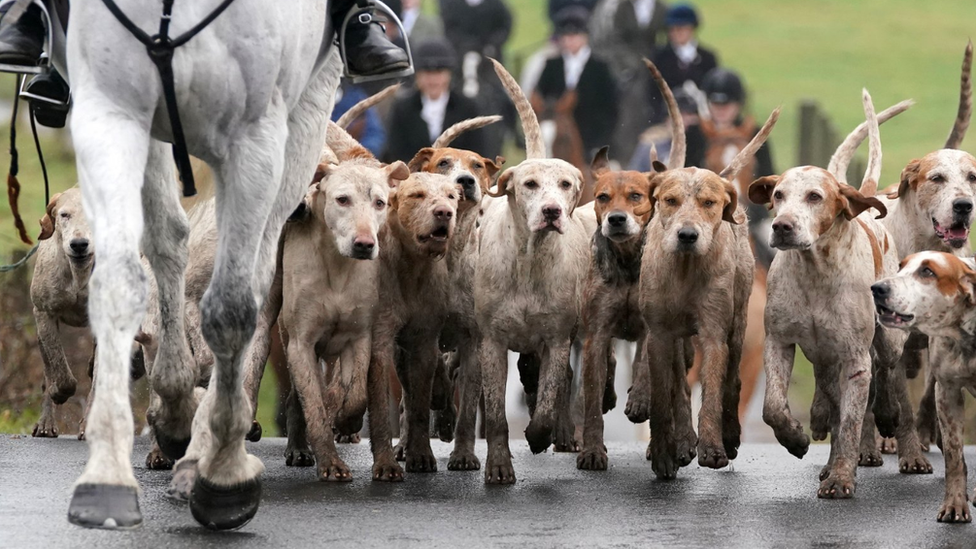Trail hunters hold open days as ban looms
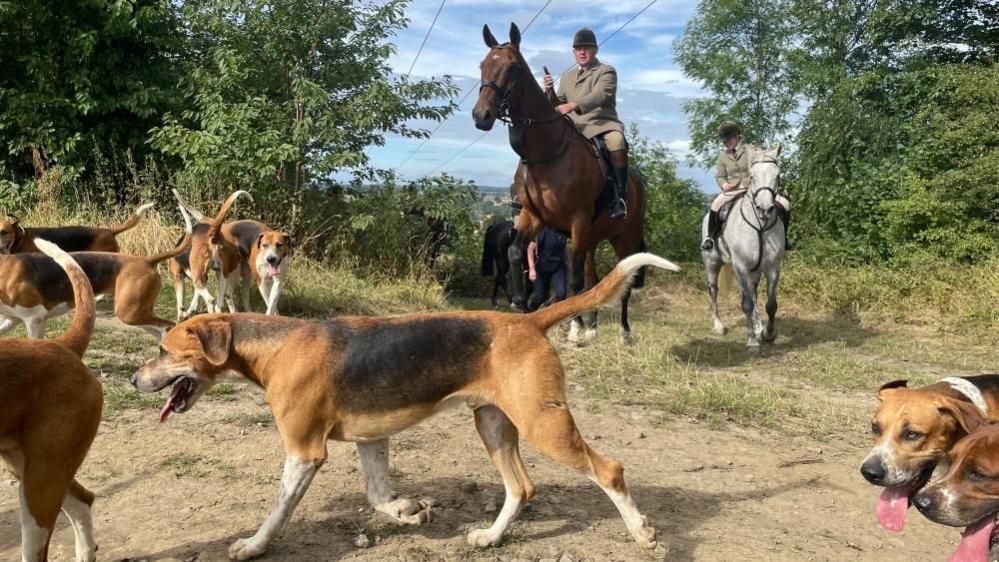
The British Hound Sports Association said a ban would be "devastating"
- Published
Trail hunters held open days this weekend to protest against claims the sport is cruel to animals, after the Labour government promised to ban the activity.
In South Yorkshire, at the British Hound Sports Association (BHSA) open day near Doncaster, members encouraged the public to see trail hunting for themselves.
They say a ban would be “devastating” as hunting creates jobs and business for rural communities and is enjoyed by “thousands of people from across the country”.
But campaigners argue the sport is a “smokescreen” for illegal fox hunting, is dangerous for animals and local communities do not support it.
What is trail hunting?
According to the BHSA, after the fox hunting ban in 2004, many hunters decided to continue the tradition by developing a sport that did not involve live foxes.
A trail layer travels ahead of the pack of horses and dogs, laying a scent for them to follow. Once he has finished, the field master releases the dogs who follow the scent.
The average time for a hunt to be completed is 10 minutes. When the trail ends the dogs stop and await instruction from the field master.
At the Doncaster open day, trail layer Tom Gaythorpe – an agricultural worker from Tadcaster – said the method simulated a traditional hunt.
"We have a natural-based scent which we lay on a rag tied to the back of a quadbike,” he said.
"We just have to put it in a sealed plastic bag when we are done so they (the hounds) don't follow me everywhere else that I go."
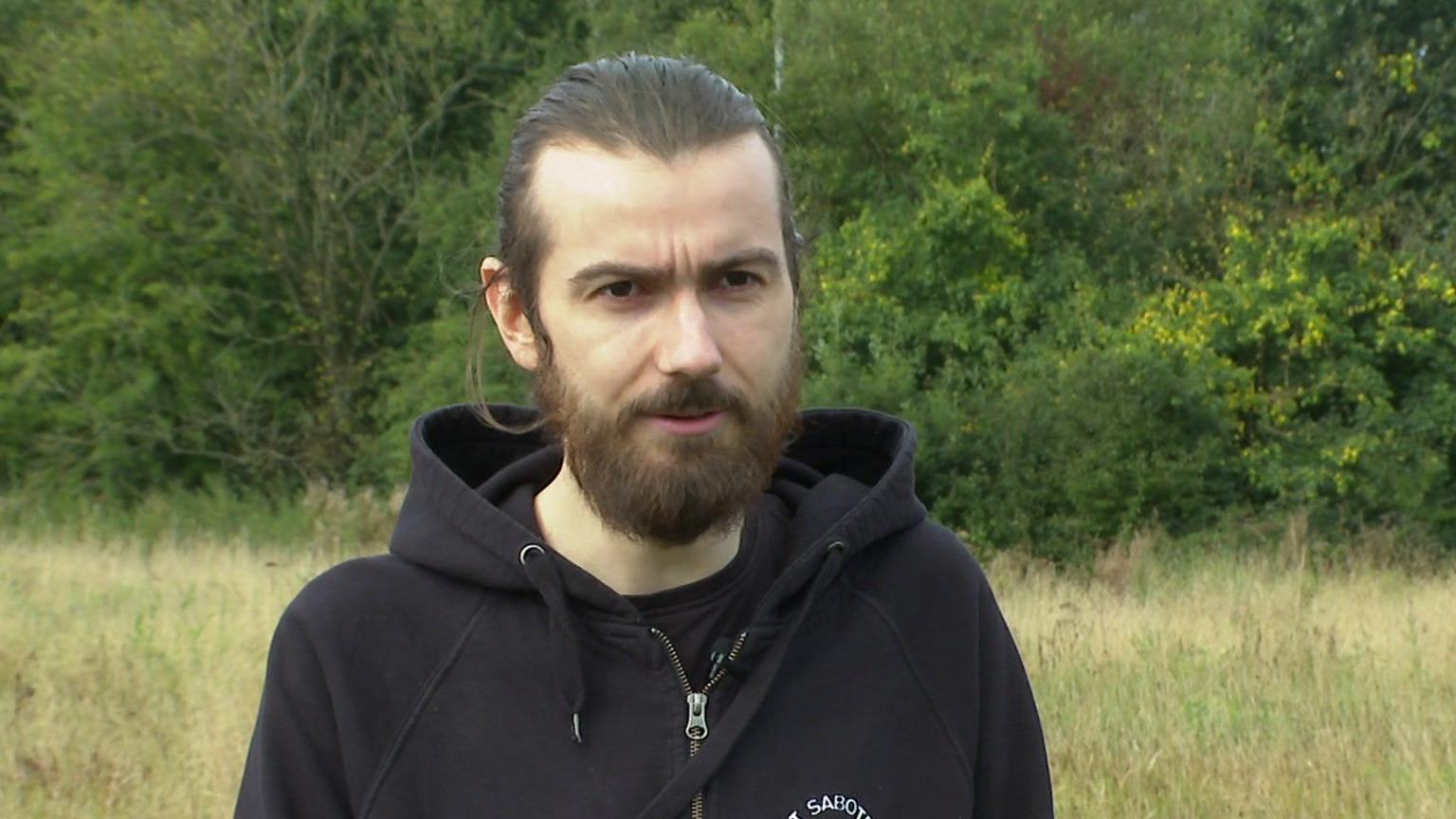
Hunt Saboteurs Association volunteer Rob Taylor said he had seen foxes being chased and killed
Why are campaigners against it?
Campaigners say trail hunting is a “facade” for fox hunting, claiming that trail hunters actively pursue foxes.
They also claim trail hunting is dangerous for horses and dogs.
Rob Taylor, volunteer for the Hunt Saboteurs Association, said he had seen foxes being chased and killed, and had seen dogs harmed in the process.
He said: “The year before last a hunt lost control of their pack of dogs and the hounds ran across a busy A-road. One of them was hit by a car and unfortunately passed away.”
The organisation said the open days were a way for hunters to masquerade their activities.
“If it was the case they were trail hunting every time they go out like they say, then there wouldn’t need to be a specific day for it, people could go out on one of their hunts on any other day.
“But if you were to, you would find that the hunts are not very keen on being filmed or watched at all, which is why there is a specific day when people can go and watch.”
BHSA spokesperson Helen Walsh said accidents did happen but were very rare.
She said: “I know there has been incidents in the past, but if you think over the last 20 years since the ban has come into place there has been about 250,000 days of hunting and under 25 convictions under the hunting act – that’s under 1%."
There have been reports of dogs losing track of the trail and causing harm to other animals.
In 2020, West Yorkshire Hunt Saboteurs recorded footage near Askham Richard in North Yorkshire that showed dogs mauling a roe deer.
At the time, a spokesperson for the York and Ainsty South Hunt said the incident was a “direct result of the actions of the anti-hunting activists”.
"These hunt saboteurs were blowing a hunting horn and distracting the hounds which took a few of them off the trail which had been laid for them to follow,” they said.
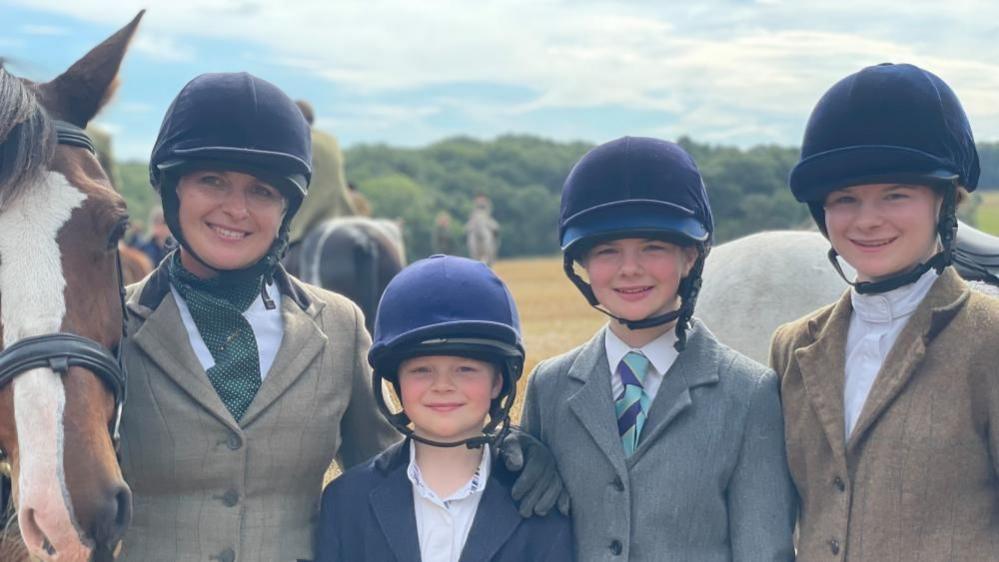
Julia and her children travelled from York for the open day
What do pro-hunting groups say?
Those who support trail hunting say a ban would be a loss to the rural community and many people are employed in hunting or businesses that support it.
Ms Walsh said hunting provided work in the winter months when there was less equestrian activity.
“There are many businesses that rely on hunting," she said.
“Hunting happens in the winter, so you could feed merchants and farriers and businesses that provide starting points for meets – all that would stop."
Others say it is a long-held tradition and fun for all the family.
At the Doncaster open day, mum Julia from York said she had brought her three children to teach them about riding safely and build confidence.
She has encouraged her children Gilbert, nine, Lila, 12, and Amelia, 15, to ride from a young age.
"It's a great, fun activity for all the family," she said.
"I have brought them out one at a time as they have got old enough to get out in the countryside so we can all do it together."
Farmer and landowner William Warde-Norbury said despite not riding himself he enjoyed being part of the day.
“I am delighted to have the trail hunting here in the grounds. I think it's a fantastic sport in its current guise and it's good to support them,” he said.
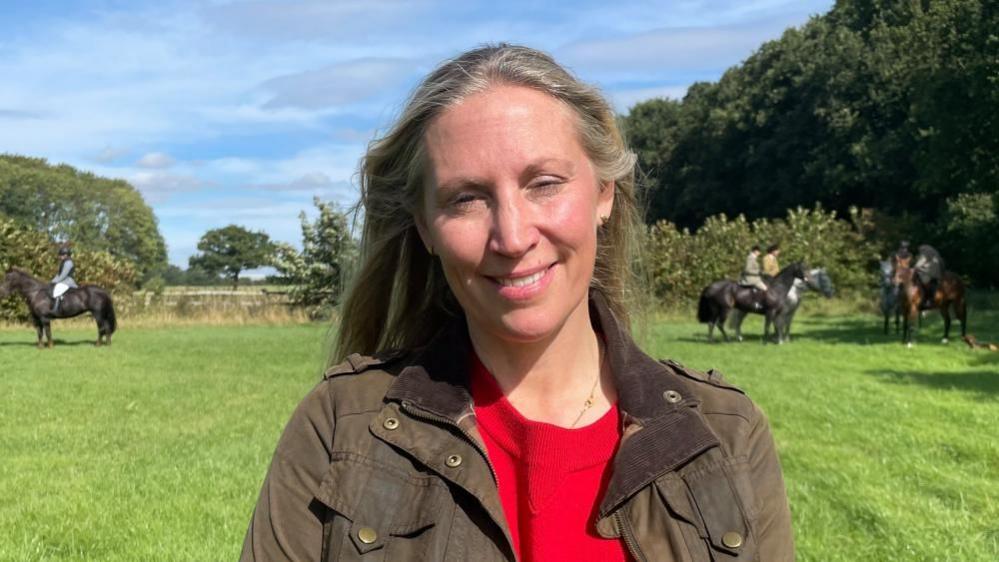
British Hound Sports Association spokesperson Helen Walsh said hunts provided work in rural communities
Will it be banned?
The government's pre-election manifesto said it would ban hunting.
It said: “Labour will improve animal welfare. We will ban trail hunting and the import of hunting trophies.”
In June, then shadow environment secretary Steve Reed tweeted that Labour would “end trail hunting that allows for the illegal hunting of foxes, deer, and hares to continue”.
Following the Labour win, Reed became Secretary of State for the Environment, Food and Rural Affairs, but no legislation has yet been passed to end trail hunting.
Mr Taylor said he believed the government was “reasonably committed” to the ban.
“The Labour government should definitely implement a ban and they stated they would in the run-up to the general election.
"A ban has already been implemented in Scotland which has been effective and it’s just a case of implementing that same ban in England and Wales.”
But Ms Walsh said she was unsure.
“I don’t know if I feel like it is going to be banned, I feel it would be a real shame if it was," she said.
“I want to remain positive and hope there are many people across the country who understand what trail hunting is and that includes the government, politicians and members of parliament."
Listen to highlights from South Yorkshire on BBC Sounds, catch up with the latest episode of Look North or tell us a story you think we should be covering here, external.
Related topics
- Published21 March 2024
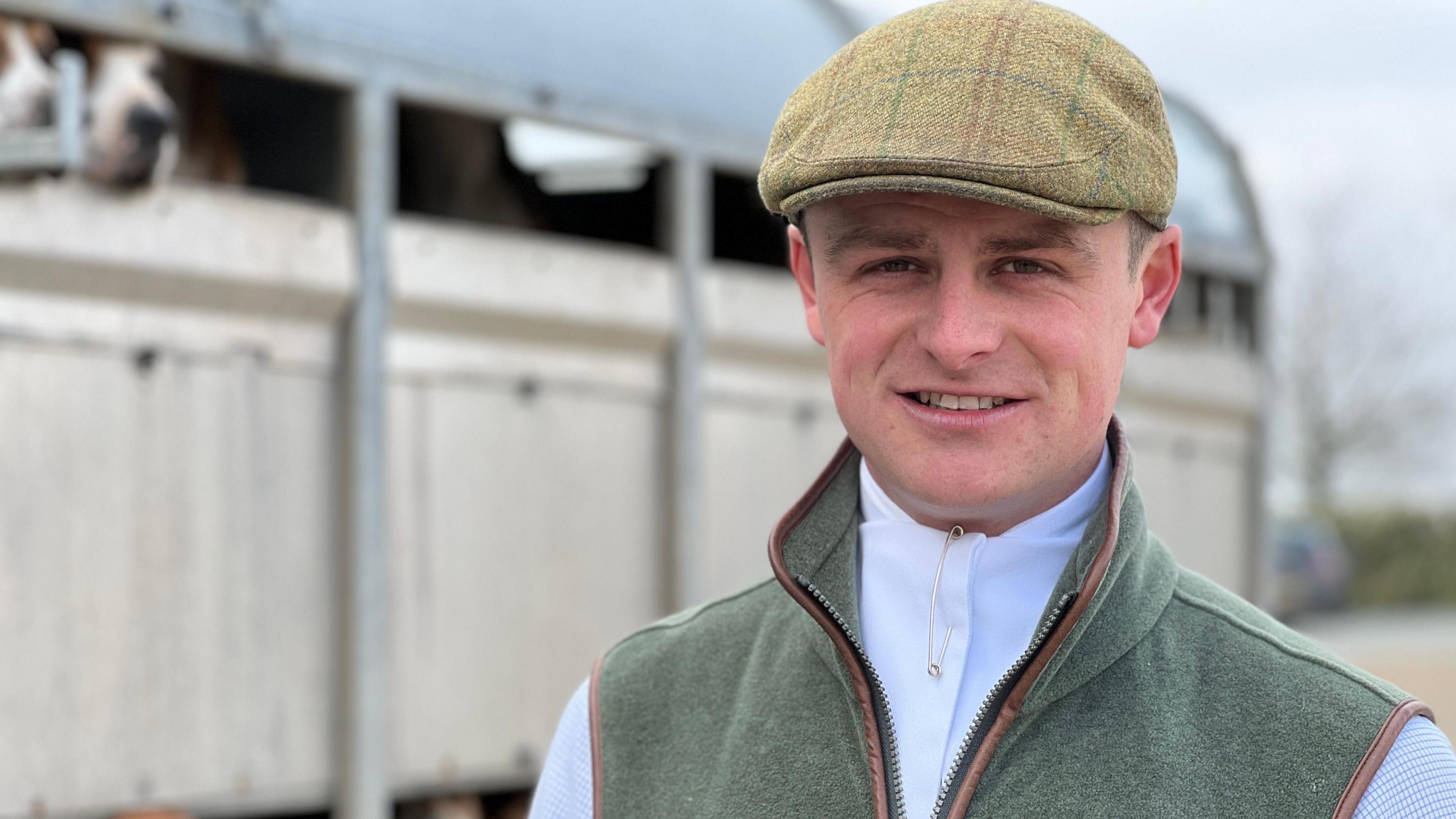
- Published26 December 2022
